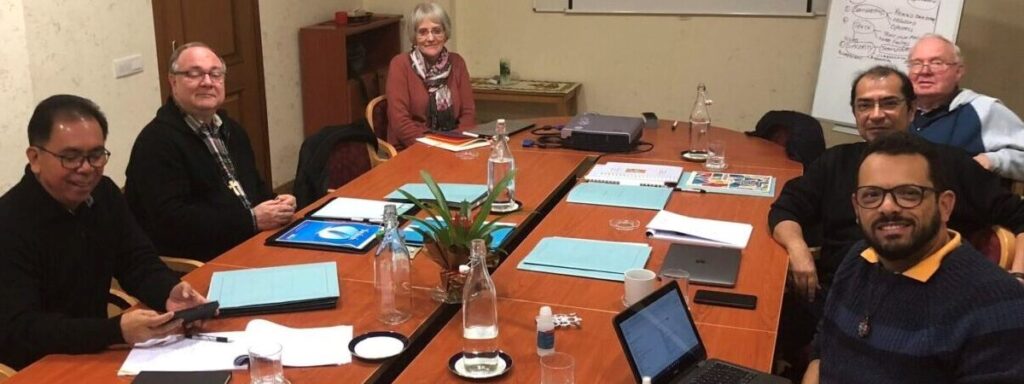
The course outlines contained here are for the benefit of both participant MSC and facilitators. The curriculum of each course shows the aim, course structure and schedule, learning outcomes, learning methodologies, actions required to complete the course, information about the course trainers, and possibilities for further development beyond the completion of the course.
The fundamental learning methodology used here is a three step process;
- Reflection on participant’s own personal experience of the topic being considered, and the submission of these reflections to course trainers using online forms or upload facilities. Reflection on experience may require participants to organise group processes such as, communal discernment, online learning communities, feedback loops, and other modalities.
- Input on topic being considered. These presentations are offered in several multimedia formats, including video, reading material, images, and others.
- Insights picked up during the progression of a course are keenly encouraged.
The learning methodology is supported by regular online accompaniment with a designated course trainer, who facilitates the participant to take reflection, input and insight to deeper levels of learning. Accompaniment also offers encouragement and supervision of the participants movement through the course.
The course outline specifies what participants can expect as well as providing a timeline for completion of activities associated with the course. Learning units are sequential, building on what has gone before. A significant feature of the course outline is its built-in progress bar. This allows participants to judge their own progress through course materials.
The course outline also allows designated individuals to view both the expectations on participants and their progress through the materials. This facility enables MSC leadership to provide accreditation in relation to the ongoing formation that has been completed. It. In some cases, MSC ongoing formation facilitators may need to refer to the original course outline when creating new courses for their local contexts.
Course Calendars
In the case of online delivery each course has a suggested timeline for progression through learning units, However, when courses are to be presented locally in collaboration with stakeholders (facilitator, leadership, participants) these timelines are to be considered flexible to enable facilitators to adapt course material to the circumstances of their workshop, program, retreat, etc
Goals
An essential goal of all of our ongoing formation courses is to “build integrity for mission”. It is hoped that this online platform might boost the profile of ongoing formation among members and contribute to building the mission. All courses presented here aim to build confidence and leadership, deepen the contemplative roots of our reflective practice, give renewed vigour to the living of our consecrated life, and provide knowledge and skills for ministry, social interaction, and human/spiritual integrity.
Actions to Complete the Course
Participants will be required to complete a set of actions for each lesson. Completion of these actions to the satisfaction of course trainers, forms a major component of the assessment process. Other contributing factors include participation in online accompaniment sessions with a designated trainer and the willingness and satisfactory participation in online learning communities. These factors together define whether a participant has successfully completed the course. A participant’s successful completion will be recognised in collaboration with the leadership of their MSC entity.
Reading List
A required reading list is available within the curriculum of each course. Within the modules of ongoing formation on this platform required reading is secondary to reflection on personal experience. Information not based on an authentic self-reflection is plagiarism. Reading is required so that it develops the capacity of the participant, not just extending knowledge, but helps him to grow as a person.
